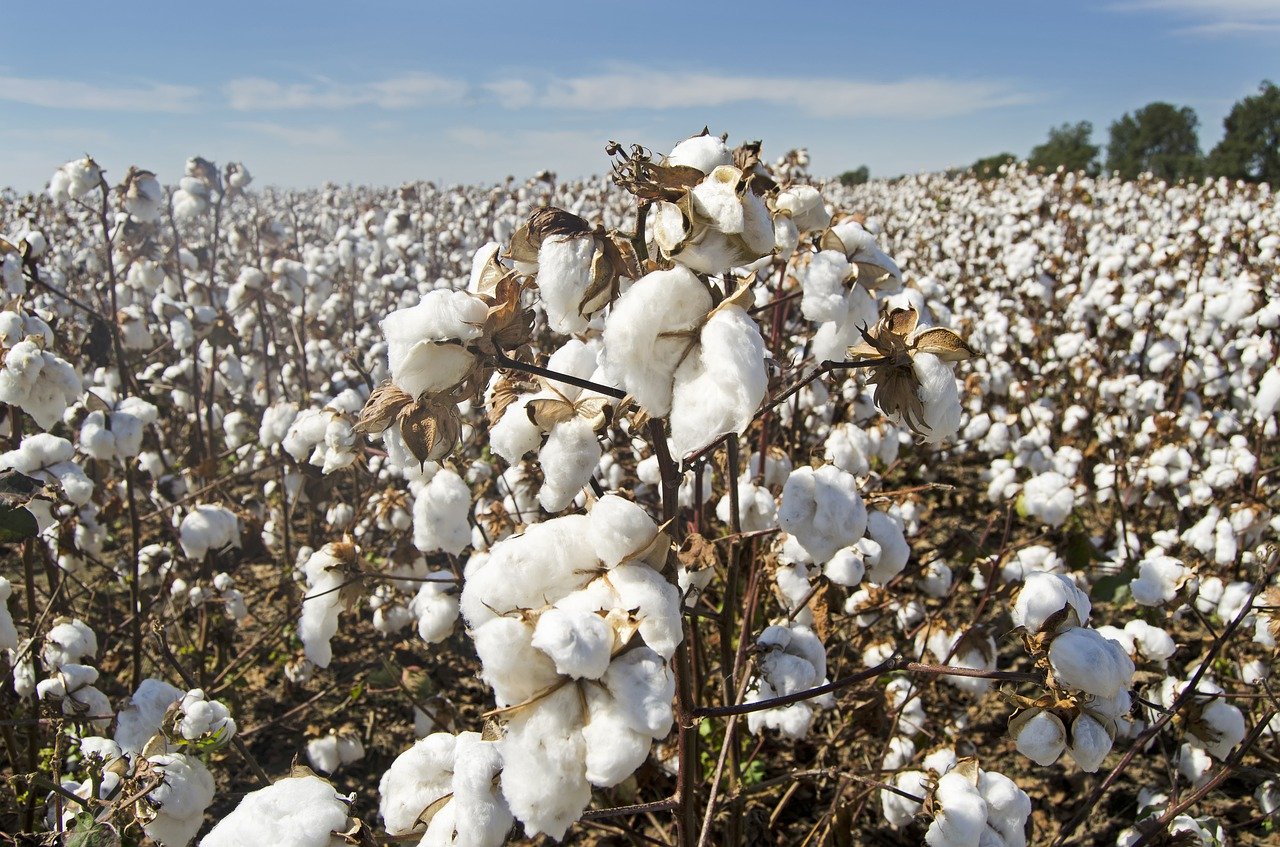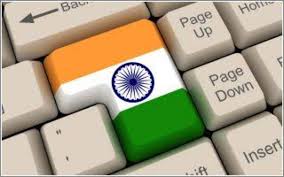This startup is saving the Indian organic cotton trade by offering free verification for their authentication certificates with the help of blockchain.
India is a huge exporter of organic produce, and a big chunk of that is organic cotton. A couple of months back, the Indian regulators figured out a well-managed scam, where fraudulent organic cotton was being sold in the marketplace as organic. The scam shook up Western buyers of Indian cotton, causing a negative impact on India, from a brand standpoint.
Read more: {Wonder Product: Airlens Minus Corona} A Coronavirus Solution for Every Human Being
InfiniChains, a Bay Area startup, who are part of the Fashion For Good initiative, decided to help. They launched a platform called Credible, where they offer free verification of the certificates for authentic organic cotton.
The Tech Panda spoke to Jitesh Shetty, Co-founder of InfiniChains and Emilee Powell, Marketing Manager, about how they are doing it as well as the relevance of sustainable fashion and the significance of traceability in today´s world.
Credible is available to enterprises as well as other entities in the supply chain, like traders, co-ops, and farmers completely free of charge. Shetty explains that it´s all part of their commitment to sustainability.

Jitesh Shetty
We want to bring the faith back in the Indian organic cotton seller, Co-ops, and especially farmers
“We made a commitment that we’ll keep this for free, and what we want is more and more traders, western buyers of organic cotton, and co-ops to start engaging and using this tool. We want to bring the faith back in the Indian organic cotton seller, Co-ops, and especially farmers,” he says.
Powell informs that many large US-based brands really depend on cotton from India for clothing. India has the highest amount of cotton manufacturers that supply to brands all around the world, especially US-based brands. Hence, the emphasis on transparency is strong.

Emilee Powell
When it comes to just transparency, it’s really important for Indian cotton growers to be super transparent about their practices and about how their cotton is grown.
“When it comes to just transparency, it’s really important for Indian cotton growers to be super transparent about their practices and about how their cotton is grown. It helps with the buyer-supplier relationship on a manufacturing level,” she says.
On the organic cotton side, Credible has 600,000 farmers and co-ops actively using the platform. That is a whopping 50% of the 1.2 million organic producing export from India.
“We are the first touch point for the farmers and are in a unique position to make a difference in their life,” says Shetty proudly.
The Scam
One of the key instruments that Indian regulators use to establish the authenticity of organic cotton is called a Transaction Certificate (TC). Western buyers rely largely on the TC to establish that the cotton they are buying is organic.
A TC is a farm level certificate provided by an Indian standards body Agricultural and Processed Food Products Export Development Authority (APEDA). A TC is issued only after a variety of controls and physical checks by the inspection body.
We are the first touch point for the farmers and are in a unique position to make a difference in their life
During the ongoing fraud, fake certificates were being issued. The certificates had a fake QR code on them, which would go to a fake website to establish that the certificate is authentic.
Typically, somebody buying cotton comes to know of the authenticity by checking the QR code, which will go to the APEDA, and get validation. But Shetty informs that the scam taking place was end-to-end fake and was having a big negative impact on India´s image as a cotton exporter.
What They Do: Traceability and Transparency
InfiniChains is a sustainability tech company. The area in sustainability they focus on is transparency and visibility.
“Under the sustainability umbrella, there are a lot of things that make a difference. We believe that traceability and transparency is an area where tech can play a big role. So that’s where we are focused on, how technology can make a difference there,” Shetty explains.
We believe that traceability and transparency is an area where tech can play a big role
They have built two products in the last two and a half years, which are extensively used in the market. Today, they have big companies like Wellspun and Pratibha Syntax using their product. They also have small companies like Eco Fashion as customers. Now, they have a long line of organic farmers in India who use their product.
How it Works
The Credible platform allows the user to upload any certificate that they have by uploading a digital file. If they have a physical certificate, they can just click an image with any smartphone and upload that to the platform.
The platform instantly provides the information about the validity of the certificate. In addition, it also provides all the key metadata in the certificate, such as who the buyer is, when the certificate was issued, who issued it and, details such as date and timestamps.
“We believe that this tool, which is very fundamental, is not doing anything super sophisticated, but will be extremely handy for anyone who’s in doubt that I’m holding the certificate. Is this valid or not? Let’s do a quick check,” explains Shetty.
A Free of Charge Vision
InfiniChains is aware of the effort it takes Indian farmers to produce organic cotton.
“If you look at the lifespan of a land in India to produce organic cotton, it’s a non-trivial commitment,” says Shetty.
Something like this happens, where a few bad actors change the image of the overall Indian agriculture on the organic side. We want to change that in our own small way, we want to contribute
Also, there are bodies like OCA who are incentivizing by playing a long-term role with the Indian farmer and co-ops. That trust has to be kept.
“Something like this happens, where a few bad actors change the image of the overall Indian agriculture on the organic side. We want to change that in our own small way, we want to contribute,” he adds.
The Changing Fashion Consumer
Fashion consumer behavior is changing rapidly, with people becoming more conscious of environmental issues, especially with fashion being the second largest polluter in the world. Powell informs that the changes taking place in consumer behavior are forcing suppliers to become responsible.
“Two things that are changing now, one is brands themselves are under pressure from a variety of areas to follow sustainable practices. In turn, they put that pressure and responsibility on manufacturers and then the upstream vendors. So, all the key nodes in the supply chain have a responsibility now. And somewhere, it starts from the consumers in the marketplace,” she says.
All the key nodes in the supply chain have a responsibility now. And somewhere, it starts from the consumers in the marketplace
This is where InfiniChains products can add the value with the supply. Brands can use their suite of products, which plug into a single platform to capture all the data and make it available to their buyers on demand.
“On the brand side, we are seeing a movement happening all over the world, where millennials especially are very conscious. There is a minimalist movement happening, driven by brands like Lulu lemon, where overall closet sizes are getting reduced. Folks are buying certain clothes, but they’re saying, let’s buy what we care about. And let’s pay a little bit of a premium,” says Shetty.
Read more: {Wonder Product: CoronaOven} To Contain Covid-19 Stage 3 and 4 Through UV Light Decontamination
This change is being driven mostly by education, among other things, he says.
“One good side effect of it is consumers and millennials are becoming more conscious, saying, let’s buy less, but let’s buy stuff that does not really harm the planet,” he says.
Here too, Credible can convey the story of transparency to the end consumer.
“You can quickly see where this product was made all the way from the seed, which communities were involved, and then you can build engaging experiences on top of that,” he explains.
From Bay Area to the Indian Farmer
So, how did a Bay Area company get involved with Indian cotton farmers?
As a startup into deep tech, Shetty and his Co-founders wanted to use emerging tech like blockchain to create an impact on the world. They decided to use blockchain in the supply chain sector, which they found to be largely fragmented and siloed. And when they looked at sectors where a supply chain can play the biggest role, they felt it to be food and fashion.
Folks are buying certain clothes, but they’re saying, let’s buy what we care about. And let’s pay a little bit of a premium
“Fashion is a very global supply chain. The folks who decide to start a business in fashion sit somewhere in the Western world, the manufacturer sits somewhere else. The source of the raw material is from somewhere else. And then it’s distributed through global digital channels,” Shetty explains.
Having deep roots in India, he realized that much of the supply chain, manufacturers, and sourcing is rooted in countries like India and Bangladesh.
Credible uses a private ledger, the Hyperledger from IBM to function. InfiniChains is one of largest production applications deployed today on the private ledger. Shetty informs that there aren’t many SaaS applications that are built from the ground up on blockchain. InfiniChains is one of them.











